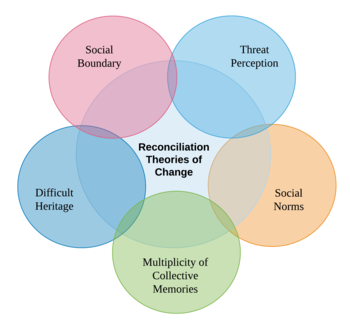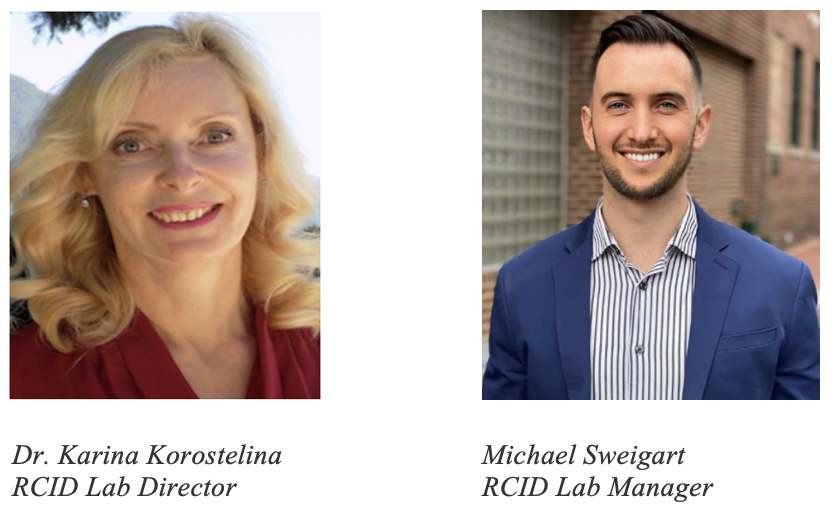The Reconciling Conflicts and Intergroup Divisions (RCID) lab works to empower conflict resolution and reconciliation practitioners with evidence-based tools and approaches for reconciling identity-based conflicts and societal divisions.

The Lab defines reconciliation as a transformative process that involves improvements in relationships between conflicting groups and changes to the social identities of each group, including their values, norms, and behaviors, to promote a peaceful and just society. We do this by focusing primarily on five thematic areas: social boundary, threat perception, social norms, multiplicity of collective memories, and difficult heritage.
Our team comprises Professor Karina Korostelina (RCID Lab Director), Michael Sweigart (RCID Lab Manager), and a number of visiting fellows and researchers each semester that support our communications, research, practice, and business development needs. Our Lab is proud to convene several doctoral students and professors each year for collaborations with partners working in the reconciliation space. Lab participants convene on a regular basis for working sessions to brainstorm innovative approaches to reconciliation and develop tools for practitioners. The lab also hosts public events with expert practitioners working on reconciliation.

Since 2020, the lab has undertaken several projects related to our core thematic areas. Most recently, the lab team studied the wartime experiences of Ukrainians and their views about peace with funding from the National Science Foundation. The lab is also working with local counterparts to support conflict resolution and social inclusion in Serbia with support from the United States Embassy in Serbia. Another core ongoing lab project is collaborative academic-practitioner research on the use of contact theory in democracy, human rights, and governance programs, funded by the U.S. Department of State.
Learn more about our work, team, projects, publications and resources in our website.
